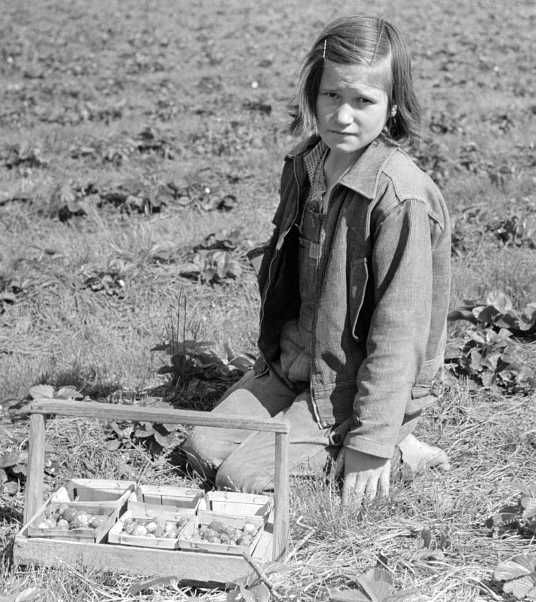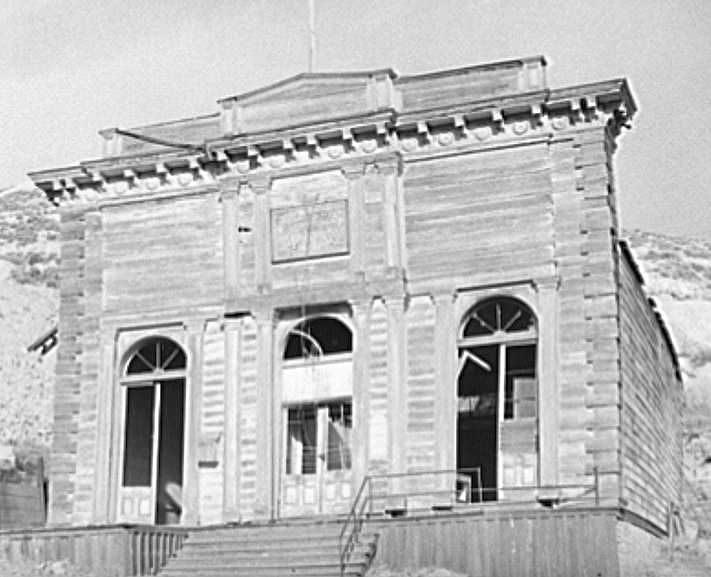
ARIZONA
Carl Boden
In my early 20s in 1932 and 1933, I hoboed for a year
At El Paso, Texas there were a long line of hobos ready to board. One of them said to me that I was real lucky. He had been let loose and told to get out of town. He saw that I was not believing his tale. He pulled up his pant leg and showed the marks of a ball and chain.
It so happened that El Paso was building a new airport a short distance from the city. He said that they would take a bunch of hoboes ever ten days. It was all hand work and the only tools were sledge hammer and pick. At night the men were strapped with ball and chain. They ate and slept where they worked. When it looked like they needed a fresh crew they told them to get out of town and picked up a fresh bunch. A day sooner and I would have been picked up.
ARIZONA
Cy Greenhalgh
Born 1914 in “raw western mining camp of Silver City, Utah.
“For families accustomed to the harsh and uncompromising life of a frontier town, the “great crash of nineteen twenty nine” was merely another blast in a continuing storm. For many years my family had endured the life of virtual depression.
“Within the decade of the 1920s the mining camp deteriorated form boom to bust. An early casualty of the Great Depression, it was abandoned in 1931; a ghost town marked only by a sign at the end of the road: silver City. No manifestation of its former being survived. Not so much as a brick form my beloved schoolhouse remained.
As the desertion of Silver City drew near, my family moved to Salt Lake Springs. During my senior years in high school, despite the hardships of the time, I enjoyed the happiest days of my life. But those happy days were not long to be.
After graduating from high school, I joined my oldest brother in search of work and sustenance in our native Utah.
After a year of futile search in our own backyard we hit the road, hoping always to find work, any kind of work, at the next stop.
Our hoboing experience drew to a close as my brother and I returned to Utah to join our father in a mining venture.

ARIZONA
D.L.Young
I stayed in thick timber, under bridges, in freight cars, haystacks, ditches. For food I ate Johnson grass stalks and roots, crawfish tails, sour duckweed. Cut stove wood for a biscuit or cornbread. Roasted corn, food, melons out of others gardens. Ask grocery stores for overripe fruit and damage food. Wild onions, mustard greens.
We would pick up pinto beans one bean at a time from the ground after the fields of farmers had been harvested. Our tooth brush was small branch from elm tree and salt. I lost three teeth. Kept a pocket slingshot with me. There were a lot of rabbets ion the brush and often we boiled or roasted rabbit over a fire. I was pretty good with a slingshot.
I was riding a boxcar with an old man, who had a peg-leg from his knee down. He saw how I boarded the box car and knew I did not know much about riding a freight. Right then he showed my some safety tips to keep from getting killed. Told me keep to the forward end of the moving boxcar. Unlock and open both sides of the doors a few inches so if a sudden stop, both door slide in a different direction, would keep you from getting locked in. Try to carry a small horseshoe and wire it to the door that no one on outside could slam it shut. Peg-leg had got his leg blown off in WW1 and had been hoboing ever since.
Nearly every place I stopped and begged for work, they told me they had work to do but dud not have the money or food to hire me.
The bosses at the industries and the constructions would look at me and shake their heads, as they saw me six feet tall and as slender as a bean pole - one hundred twenty five pounds. Military said I had imperfect hearing.
In January 1936, Thelma and I got a job from Hubert Hansly in Wolf City, Tex. It took all day to cut a rick of wood that paid each of us 25 cents a day. We lived on $3 a week. No food stamps. No welfare.
It appeared to us that the black people were more respectful to both races. More respectful than a lot of white people were to each other; more to the women and children. Wife and I would have been put off the car at Tom Bean Texas and would have had to walk to Sherman, TX. Old black man whispered to us to get back to the far end of box car closest to the wall; the conductor could not see us. Three of us out of the fifteen people there got to ride to Sherman TX.
ARIZONA
Daniel Elliot
A 12-year old riding with Dad for work.
Cowboys took up a collection and handed me $20
Why I stopped: A dear friend called Bob Moore wanted to go to California. He must’ve fell off the freight. They found him next morning. Also found his parents from Springfield, MO. I never rode a train after that…
ARIZONA
Doyle E. Marion
Age 16
After riding the platform on one of those huge locomotives of the Union Pacific RR up through the Siskiyou Mountains, early one morning at sunrise the train stopped. A load of us piled off and headed down a ravine to a jungle and the fellows there had a gallon sized can full of fresh hot coffee…
In the chill morning air, and completely covered with soot from the locomotive, that was the best cup of coffee I ever had.
ARIZONA
Edgar Bledsoe
14, living in Ardmore, Oklahoma
“It was quite a while before I realized that charity was not a disgrace, but an old Latin word for love."
One day in October of 1929 as I was on my way home from the Carnegie Library I could hear a newsboy yelling, “Extra - Extra! Stock Market collapses.
I went home and told mother that a cattle auction barn had collapsed somewhere, and that it must have killed a lot of cattle and probably some people too, because the newsboy sounded like it was pretty serious.
That was what ‘stock market’ meant to me at the time. Not until much later did I realize that it was much more serious than a barn caving in.
At 16, Edgar became a harvest tramp… many, well-written yarns; e.g.. Uncle Jeff and the Comanches/ Caught in bath of old girlfriend by hubby/ Oklahoma City soup kitchens, with their half gallon Swift’s Jewel Shortening buckets in their hands./ A bull in Denver called Denver Bob who was so sadistic he would knock hoboes in the head with his billy and shove them beneath the wheels of a moving freight train.
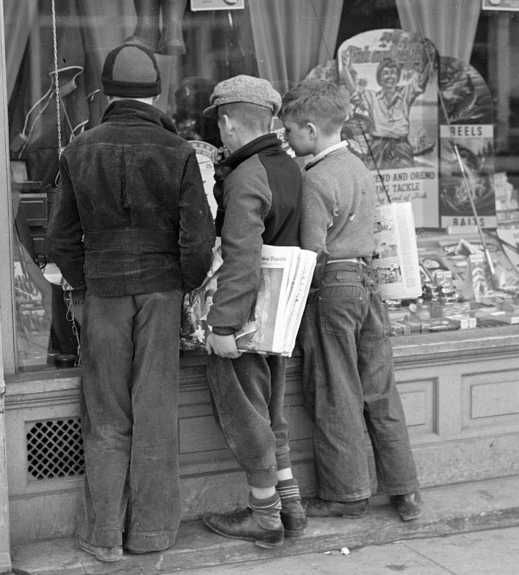
ARIZONA
Kenneth Martin
“I was born and grew up in the Ozark mountains of Arkansas near the small town of Heber Springs, altho' I lived 18 miles from Heber Springs. My post office was Wolf Bayou.
I remember when I was a boy around 12 or 13 years old I used to help my dad make moonshine or white lightning as some called it. I helped him carry the sugar, cornmeal and wheat shorts down in the woods to the location of the still and the mash barrels. I say down in the woods because the still would usually be located in a 'hollar' as we called it near a branch or small creek as we had to have plenty of water to make the stuff.
Anyway as I grew older I continued to help my dad make moonshine until I was 17 years old. Then one day we had a small disagreement, so I left home to try and make it on my own.
It was in late August 1933. I went to the nearest railroad and caught a handful of boxcars to Waco, Texas to try and get a job picking cotton which I did. But that didn’t last long.
A friend I met while picking cotton and decided we would go down to Corpus Cristi, Texas to try to get a job cleaning up the town after a hurricane had hit it. We rode a freight down there. Well, that lasted one week: he got a job... he was 18. I was only 17 they wouldn’t hire me.
I fished that week and caught enough fish to live on. I sold my fish each day to a small market.
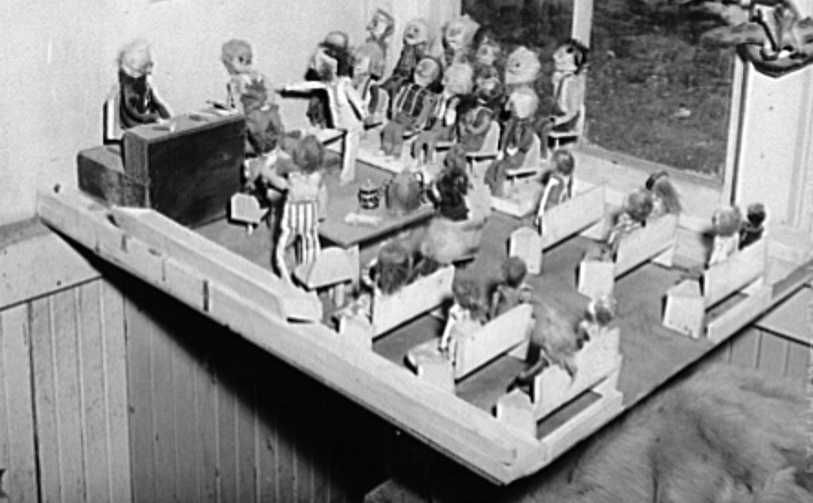
ARIZONA
Lee Leer
15/1937
Olive, Oklahoma…
"It was a place of existence rather than a home”
Runaway: “I had squirreled away some money, some from a pig I raised and sold, and a little from picking cotton the previous fall… My money was buried between two pieces of bark in the barnyard. I had a blanket and some extra clothes stashed away under the hay in the barn.
I knew Kansas was out that way where the sun goes down, so I headed in that direction.
The evening before I had been ordered out of a small prairie town by a burly cop who caught me going through the trash cans looking for something to eat.
That was a day the lady of the house and the boss of the farm became more beautiful to me:
It was way they figured out to pay me the dollar a day they promised:
"'Well boy, turn your plate over and let’s get on with it…..'
"A pile of green dollar bills…. Although I tried not to show it, my food was watered by a few stray tears.
“'You’re a good hobo, Lee. Keep it that way and you’ll make it."
ARIZONA
Murray Simkin
We found no jobs in Travers City or the so-called cherry orchards, which we never did discover, but we did find in the jungles around city after city men who had lost their souls. Young men, old and sick men, men who were crippled and could not do any kind of work, yes and bindlestiffs, who were out to keep clear of labor.
"Have you seen grown men cry? These men were crying for work – just enough to keep body and soul together until something came along to fill their spiritless days.
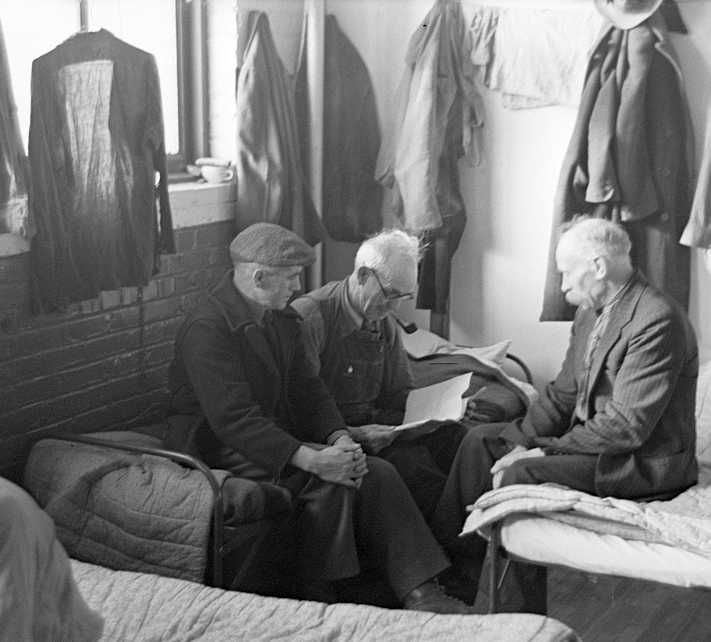
ARIZONA
Nan Applegate
Rode with mom and sister at age 11
OK to CA
"No shame at having been poor... Never felt as poor as you are when you are young"
"Never had any dolls in my life."
She wept openly, remembering Christmas Day in the jungle, when one of the men gave her a pocket knife.
Started working at 14 in 1939
ARIZONA
Richard Grier
My stepfather kicked my brother and I out. I was 12, my brother 15. We lived in Superior Nebraska, which is on the Kansas NE line in South Central, Nebraska.
My first journey took me north - NE, SD, ND - and west into Montana where they were building the Fort Peck dam. I got a job cleaning mechanics tools with gas and rags. The hours were from midnight to 8 a.m. I worked that job for six weeks.
I received a card from my brother, who had lied about his age and had joined the navy in San Diego. I decided to go there.
I hitched and rode freight trains. The freight I was on had a derailment. I was lucky as some twenty or more hobos were killed in that wreck.
ARIZONA
Ross Crane
“Most of the tales come back to being cold… When I was warm and the sun was shining nothing bothered me. I now live in Yuma, AZ – the nearest to hell in summer you can get.
On the freights in South Dakota, it was cold. Very cold. The fireman on the engine knew I was there and when the wind was right he turned his water hose over the tender on to me. I was so desperately cold and miserable that I considered jumping off in the dark at 30 mph to get away. I left this train at first chance.
A neat little man on the blinds of the crack Empire Builder pulled a big nickel-plated pistol and lapelled his star.
Pocatello bull carried a gun with many notches on the butt; he'd been known to brag that they were all real.
A pretty girl picked up hobos and took them home with her. There she was as pretty as a picture and sporting the biggest pair of black eyes anyone could ever see...
I felt bad for the drunk hobo, even though I sure didn’t want to be responsible for him. We rode all night and at dawn’s light, he crawled up out of the cattle car. He had slept under the cows all night. What a mess!
Four or five men and a woman in one end, sort of guarded. The hobos I was with left them alone. In the night we heard a baby cry.
In the daylight, this group left the car with no baby...
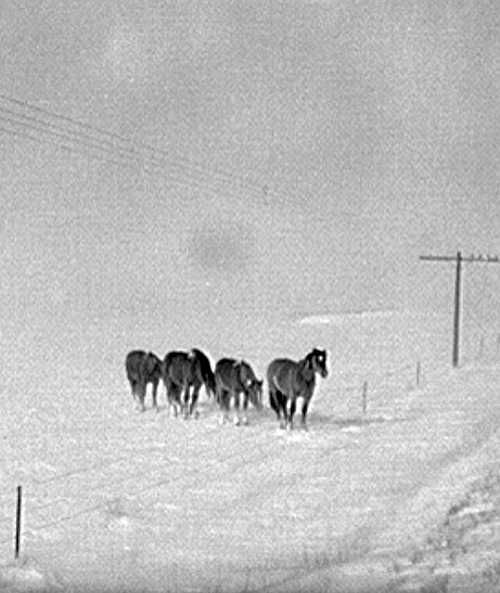
ARIZONA
Tiny Boland
1934, not quite 15, when I left South Sioux City, Nebraska to ride rails west coast to pick fruit.
My last meal at home consisted of boiled potatoes for supper, the only meal that day, no gravy, no bread, nothing but boiled potatoes. I hugged my Mom, said good bye and left.
My only possession was a new Greun wristwatch which I had bought for a dollar down and 50c a week. I went to the grocer and asked him if I could pawn it for five bucks until I returned. He said four dollars was all he could spare so I took it, met the guys and off we went to the rail yards in North Riverside, Iowa where we boarded a freight for Aberdeen, South Dakota to begin our journey to Spokane, Washington arriving four nights and three days later.
The night we arrived in Spokane, the freight yards was in the industrial part of town. There was a wooden freight dock where they stripped the freight cars and re-loaded the contents onto trucks for city delivery.
That dock was three city blocks long and it was said that there were about 3,000 hoboes asleep on the dock that night. On the Skid Row across the street were a series of eateries and for 15c we got a meal. A large pork chop, potatoes and gravy and coffee with a slice of bread. What a feast!
We finished our food and was told a freight was pulling out for Portland Oregon in half an hour so we got on and left behind that scene of desolation.
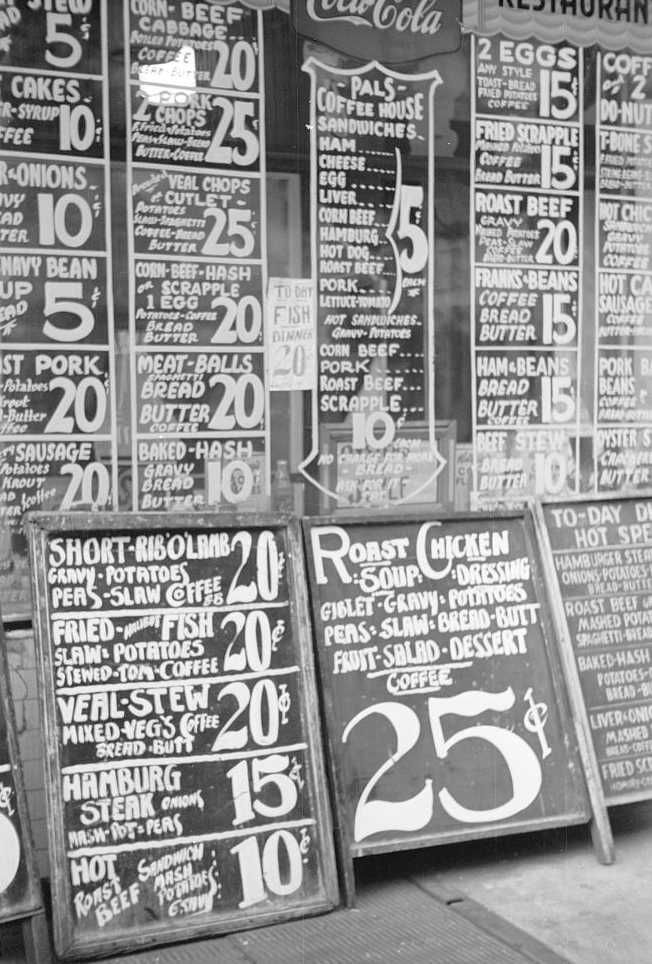
ARIZONA
Violet Greig
I was 13 – from a family of 16 - being no 13. Me and my 15-year-old brother went together.
I rode on a boxcar from Minot, North Dakota to Idaho in 1935.
I can remember how excited I was as we went through the Rockies and saw my first real Christmas tree growing. Then again in Spokane, Washington, when we came to the apple orchards.
I have a lot of fond memories of that trip. We went to bakeries and wrapped bread to get free rolls and bread.
"Bismarcks" were so special I had never ate or heard of them. We asked a man if we could have some. He gave us a box that we took back to the jungle.
I was a girl and all the bums looked out for us. I had my hair cut short to look like a boy, and I wore bib overalls.
ARIZONA
Walter Miletich
I was 16 and remember the day mama heard a neighbor woman say there was a lot of people trying to get into the bank. Of course, the bank was closed and mama’s 300 dollars in savings was gone.
Rode rails for five years:
I can tell you about the young lady traveling in the same boxcar with a young man and she needed a pair of shoes. When we stopped in Laramie, a middle aged bum who had overheard the conversation, brought her back a pair of shoes that fit her nicely. The next day she was traveling with the older man.
Harvest tramp poor treatment stories: North Dakota, five days, not paid; Fresno grapes picked at penny a box and owed 56 cents at end of three days; Japanese tomato grower who wouldn’t let me have two toms that lay on ground; mowing yard as big as football field for a sandwich; unload a truck for pieces of ham thrown away...
Helped freezing black man into compartment and he “almost tore my hand off in gratitude.”
I remember telling a young man a few years ago about the days that I went without food. About my trials during the Depression. His comment was that that was not true, something like that could not happen in this country.
I can tell you of men so distraught, rather than ask for water, they would drink water from the ground if it was available.
